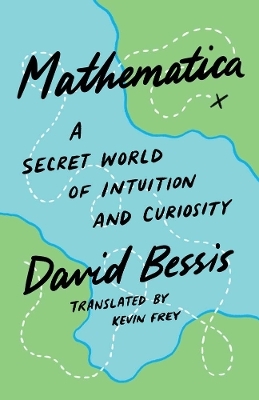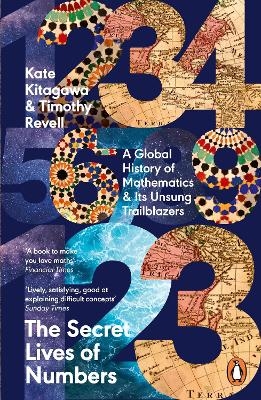
The Science of Conjecture
Evidence and Probability before Pascal
Seiten
2001
Johns Hopkins University Press (Verlag)
978-0-8018-6569-5 (ISBN)
Johns Hopkins University Press (Verlag)
978-0-8018-6569-5 (ISBN)
Before Pascal and Fermat's discovery of the mathematics of probability in 1654, how did we make reliable predictions? This text provides a history of rational methods of dealing with uncertainty, some avoiding numbers entirely, which were used before the principles of probability were learned.
Before Pascal and Fermat's discovery of the mathematics of probability in 1654, how did we make reliable predictions? What methods in law, science, commerce, philosophy, and logic helped us to get at the truth in cases where certainty was not attainable? In this text, James Franklin examines how judges, witch inquisitors, and juries evaluated evidence; scientists weighed reasons for and against scientific theories; and merchants counted shipwrecks to determine insurance rates. Sometimes this type of reasoning avoided numbers entirely, as in the legal standard of "proof beyond a reasonable doubt"; at other times it involved rough numerical estimates, as in gambling odds or the level of risk in chance events. The book provides a history of rational methods of dealing with uncertainty. Everyone can take a rough account of risk, Franklin argues, but understanding the principles of probability and using them to improve performance is an immense task - a task that had to be learned over human history, just as we had to train ourselves to become aware of the principles of perspective. The theme of this study is the "coming to consciousness" of human understanding of risk.
Before Pascal and Fermat's discovery of the mathematics of probability in 1654, how did we make reliable predictions? What methods in law, science, commerce, philosophy, and logic helped us to get at the truth in cases where certainty was not attainable? In this text, James Franklin examines how judges, witch inquisitors, and juries evaluated evidence; scientists weighed reasons for and against scientific theories; and merchants counted shipwrecks to determine insurance rates. Sometimes this type of reasoning avoided numbers entirely, as in the legal standard of "proof beyond a reasonable doubt"; at other times it involved rough numerical estimates, as in gambling odds or the level of risk in chance events. The book provides a history of rational methods of dealing with uncertainty. Everyone can take a rough account of risk, Franklin argues, but understanding the principles of probability and using them to improve performance is an immense task - a task that had to be learned over human history, just as we had to train ourselves to become aware of the principles of perspective. The theme of this study is the "coming to consciousness" of human understanding of risk.
James Franklin is a professor in the School of Mathematics and Statistics at the University of New South Wales.
Preface
Chapter 1: The Ancient Law of Proof
Chapter 2: The Medieval Law of Evidence: Suspicion, Half-proof, and the Inquisition
Chapter 3: Renaissance Law
Chapter 4: The Doubting Conscience and Moral Certainty
Chapter 5: Rhetoric, Logic, Theory
Chapter 6: Hard Science
Chapter 7: Soft Science and History
Chapter 8: Philosophy: Action and Induction
Chapter 9: Religion: Laws of God, Laws of Nature
Chapter 10: Aleatory Contracts: Insurance, Annuities, and Bets
Chapter 11: Dice
Chapter 12: Conclusion
Epilogue: The Survival of Unquantified Probability
| Erscheint lt. Verlag | 21.9.2001 |
|---|---|
| Verlagsort | Baltimore, MD |
| Sprache | englisch |
| Maße | 156 x 235 mm |
| Gewicht | 862 g |
| Themenwelt | Mathematik / Informatik ► Mathematik ► Geschichte der Mathematik |
| Naturwissenschaften | |
| ISBN-10 | 0-8018-6569-7 / 0801865697 |
| ISBN-13 | 978-0-8018-6569-5 / 9780801865695 |
| Zustand | Neuware |
| Haben Sie eine Frage zum Produkt? |
Mehr entdecken
aus dem Bereich
aus dem Bereich
a secret world of intuition and curiosity
Buch | Hardcover (2024)
Yale University Press (Verlag)
CHF 45,80
a global history of Mathematics & its Unsung Trailblazers
Buch | Softcover (2024)
Penguin Books Ltd (Verlag)
CHF 22,65
Das Jahrhundert, in dem die Mathematik sich neu erfand. 1870-1970
Buch | Hardcover (2022)
Heyne (Verlag)
CHF 30,80


